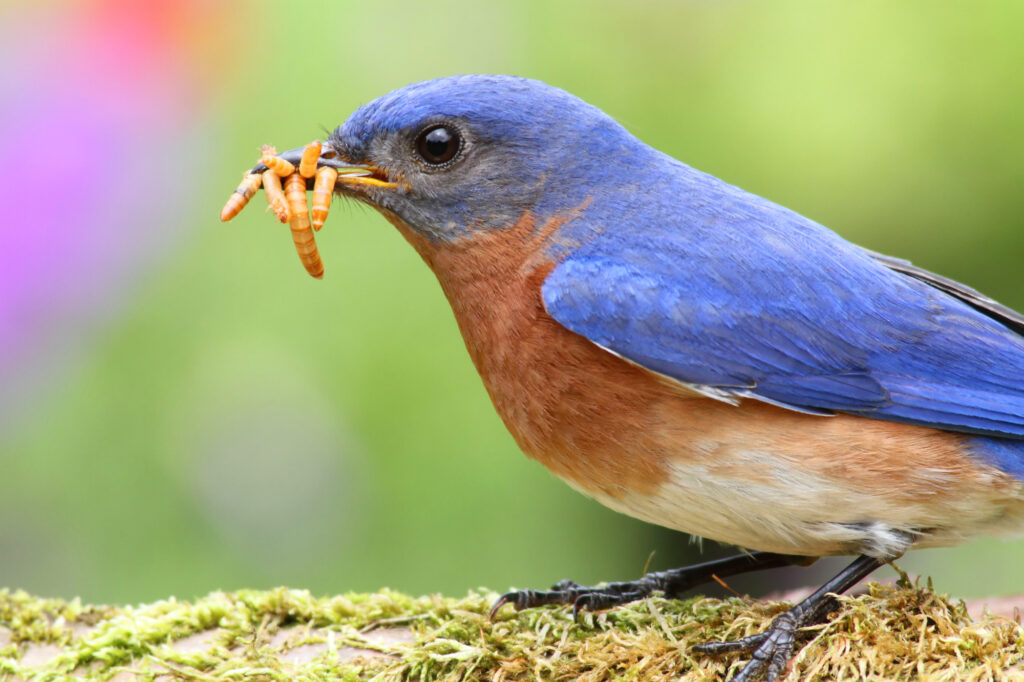The question “can birds eat maggots?” has been frequently asked by many.
Maggots are the larvae of flies that can be found in decaying organic matter. When birds eat maggots, they are getting a high-protein meal that is full of nutrients. Maggots are also very low in fat and calories, making them a healthy choice for birds.
In this blog post, we will discuss the nutritional benefits of maggots for birds and offer some tips on how to attract these insects to your backyard!
Things You Need To Know About Maggots
Maggots are the larvae of flies and are often seen as repulsive, dirty creatures. However, these creatures serve an important purpose in the life cycle of a fly. Maggots help to decompose dead animals and other organic matter. As they consume this matter, they break it down into smaller pieces.
This process helps to provide nutrients for plants and other organisms and also prevents the spread of disease. Maggots typically hatch from eggs that are laid by flies in rotting food or other organic matter. The maggots then grow and mature into flies.
While this may seem like a gross process, it is an essential part of the life cycle of many insects.
Why Birds Eat Maggots
While most people would turn away in disgust at the thought of eating maggots, for birds, these wriggling larvae can be a nutritious and protein-packed meal. And as gross as it may sound, there are actually a number of good reasons why birds eat maggots.
For starters, maggots are an excellent source of moisture, which is essential for birds since they cannot sweat like humans do to cool down. In hot weather, eating maggots can help birds stay hydrated and avoid becoming dehydrated. Additionally, maggots are packed with nutrients and high in protein, both of which are vital for supporting a bird’s metabolism.
And since birds have a very high metabolic rate, they need to consume a lot of food relative to their body size in order to maintain their energy levels. Thus, eating maggots can help birds meet their energy needs.
Finally, it’s important to remember that not all maggots are created equal. Birds are careful to select only the healthy and nutritious maggots to eat, discarding any that are sick or have died.
So, while eating maggots may not be appetizing to us humans, for birds, these wriggling larvae are a great food source.
What Birds Eat Maggots?
Maggots are an important part of the food chain and birds play a particularly important role in the life cycle of maggots.
Some species of birds, such as house finches and blue jays, will deliberately seek out maggots as part of their diet during the spring and summer months.
Other birds, such as woodpeckers and chickadees, will eat maggots only if they are already present in their food source. For example, if these birds are eating insects that have been parasitized by maggots, they will often eat the maggots as well.
Ultimately, both groups of birds play an important role in controlling the population of maggots.
Not only do they help to keep the population in check, but they also help to recycle nutrients back into the ecosystem. Without them, the number of maggots would quickly get out of control.
Are Maggots Good for Birds?
Maggots are often thought of as being nothing more than repulsive little creatures that feast on garbage and carrion. However, maggots can also be a valuable food source for birds. In fact, many birds will deliberately seek out maggot-infested carcasses as a key part of their diet.
While this may seem gross to us, maggots are an excellent source of protein and other nutrients that birds need to survive.
In addition, maggots are easy to digest and provide a ready source of energy. For these reasons, maggots can be good for birds – even if they’re not so good for our stomachs.
Can Birds Eat Flies?
Most birds eat insects, especially when they are young. Some of these insects are flies.
Birds that commonly eat flies include flycatchers, doves, chickens, and House sparrows. Chickadees and nuthatches will also eat flies occasionally. Most birds that eat flies capture them in mid-air.
This can be a tricky feat since flies are small and move quickly. To make matters more challenging, some flies are poisonous or otherwise harmful to birds.
For example, the larvae of the botfly can cause disease in chickens. As a result, birds must be careful when choosing which flies to eat. Generally, however, most birds can safely eat flies as part of their diet.
What Kind of Bird Eats Flies?
The bird that eats the most flies is the House martin. This aerial insectivore hunts on the wing, scooping up flies with its long, forked tongue. House martins are found throughout Europe and Asia, where they build mud nests on the sides of buildings.
These birds are considered helpful to humans because of their voracious appetite for flies and other insects.
Other insect-eating birds include swallows, swifts, and some species of warbler.
Some larger birds, such as chickens and raptors, will also opportunistically eat flies when they can catch them. In general, any bird with a diet that consists mostly of insects is likely to consume a significant number of flies.
Conclusion
While it is not the most appetizing sight, many birds will readily eat maggots. Maggots can provide an excellent source of protein for birds. Maggots are also relatively easy to find, making them a convenient food source for many birds.
However, it is important to note that not all maggots are safe for birds to eat. Some species of maggots can carry disease, so it is important to do some research before feeding them to your feathered friends. Overall, though, maggots can be a healthy and nutritious part of a bird’s diet.
I hope this answers all of your questions. Thank you for taking the time to read this!

